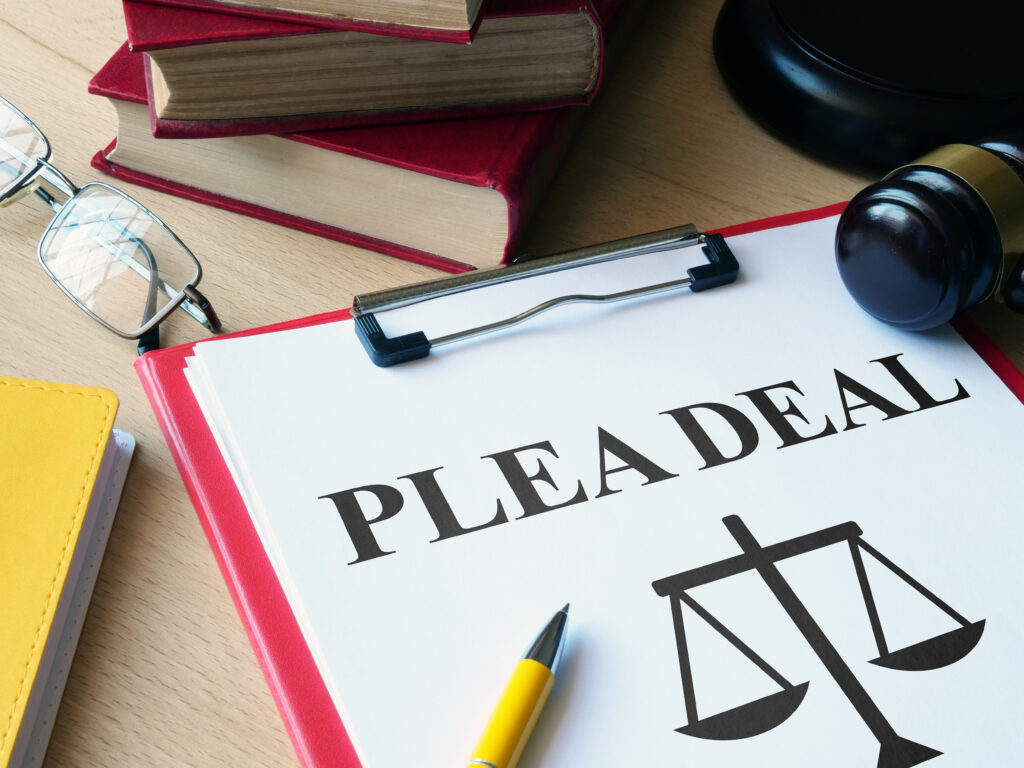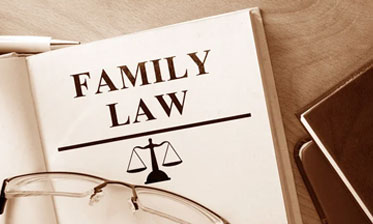
Not every case goes to trial. In fact, the majority of criminal cases are resolved through plea deals rather than jury verdicts. Statistics show that “the overwhelming majority (90 to 95 percent) of cases result in plea bargaining” This means it’s very likely you might face a choice of whether to take a plea bargain – an agreement to plead guilty in exchange for some benefit
Having a lawyer during plea negotiations is vital to getting a fair deal. Prosecutors are experienced and will often push for the toughest charges or highest sentence they think you might accept. A defense attorney balances the scales by advocating for you in those negotiations. Here’s how an attorney can help with plea deals:
- Evaluate the Deal: A lawyer can analyze the strength of the prosecution’s case and give you an honest assessment of whether a plea offer is good or not. They’ll explain the consequences of the plea versus the risks of going to trial. This professional guidance prevents you from accepting a bad deal out of fear or rejecting a good deal due to misunderstanding.
- Negotiate for a Better Offer: Defense attorneys negotiate with prosecutors all the time – it’s a normal part of the process. Your lawyer might convince the prosecutor to reduce the charge (for example, from a felony to a misdemeanor) or to recommend a more lenient sentence. They can point out weaknesses in the prosecution’s case or highlight mitigating factors about you (such as no prior criminal record) to argue for a better outcome. Without a lawyer, you likely wouldn’t know how to make these arguments effectively. Simply put, your attorney speaks the prosecutor’s language and can often get a sweeter deal than you would on your own.
- Protect Your Rights in the Plea Agreement: Even when you decide to plead guilty, a lawyer ensures the agreement is fair and that you understand it. They make sure you aren’t unknowingly giving up important rights beyond what’s necessary. For instance, the lawyer will check that the written plea agreement doesn’t contain any surprises and that the prosecutor actually honors their promises. If the police or prosecutor did something improper in your case, your lawyer can use that as leverage in negotiations – maybe the state will offer a much better deal rather than risk that certain evidence gets thrown out because your rights were violated.
Suppose you’re charged in North Carolina with a DWI (Driving While Impaired) and there are some doubts about whether the traffic stop was legal. The prosecutor offers you a plea to a lesser charge with probation. With a lawyer’s help, you might negotiate this down further – perhaps to a charge that won’t suspend your driver’s license or affect your record as harshly. Your attorney could argue that the questionable legality of the stop would make their case shaky at trial, pushing the prosecutor to compromise. Additionally, your lawyer will ensure the plea’s terms (like any alcohol education programs or community service) are clearly defined and reasonable. Without a lawyer, you might not realize these options exist and could end up pleading to a harsher outcome than necessary.
I have spent my fair share of hours in criminal courts all across North Carolina. I have watched countless pro se pleas in front of the Judge. Most prosecutors will ask for more punishment than normal because they know there is not a defense attorney on the other side that would object.
I saw a young single mother plead to stealing $17 worth of makeup from Ulta (misdemeanor larceny). If she had an attorney, she likely would not be pleading at all. An attorney would fight and Ulta would have to appear in court and show proof that the client committed the crime. Here, the mother plead guilty mostly because she could not afford another day off of work to wait in court. The prosecutor asked for an active sentence. The judge gave her 100 days active in jail because it was her second offense. She plead to a simple misdemeanor without an attorney by making an open-ended deal with the wrong prosecutor and in front of the wrong judge.
Facing criminal charges is daunting, but remember that the law is on your side when it comes to the right to an attorney. The Sixth Amendment guarantees you a lawyer for a reason – to give you a fighting chance and ensure fairness in the justice system. Whether it’s during a police interrogation, in the courtroom at trial, or in closed-door negotiations for a plea deal, having a skilled defense attorney can make all the difference. They protect your rights, guide you through the maze of legal procedures, and advocate for the best possible outcome.
Source: Bureau of Justice Assistance – U.S. Department of Justice – Plea Bargain entry (DOJ statistics on 90–95% of cases ending in plea deals) https://bja.ojp.gov/sites/g/files/xyckuh186/files/media/document/pleabargainingresearchsummary.pdf


Clark Jones Author
G. Clark Jones, CEO of Ley Law, has built a distinguished career in Criminal Defense and Family Law across Eastern North Carolina, known for his dedication to clients and his commitment to achieving justice. Graduating Magna Cum Laude with a Bachelor of Science in Family Community Services from East Carolina University in December 2016, Clark pursued his Juris Doctor degree at J. Reuben Clark Law School, Brigham Young University, completing it in December 2019.





